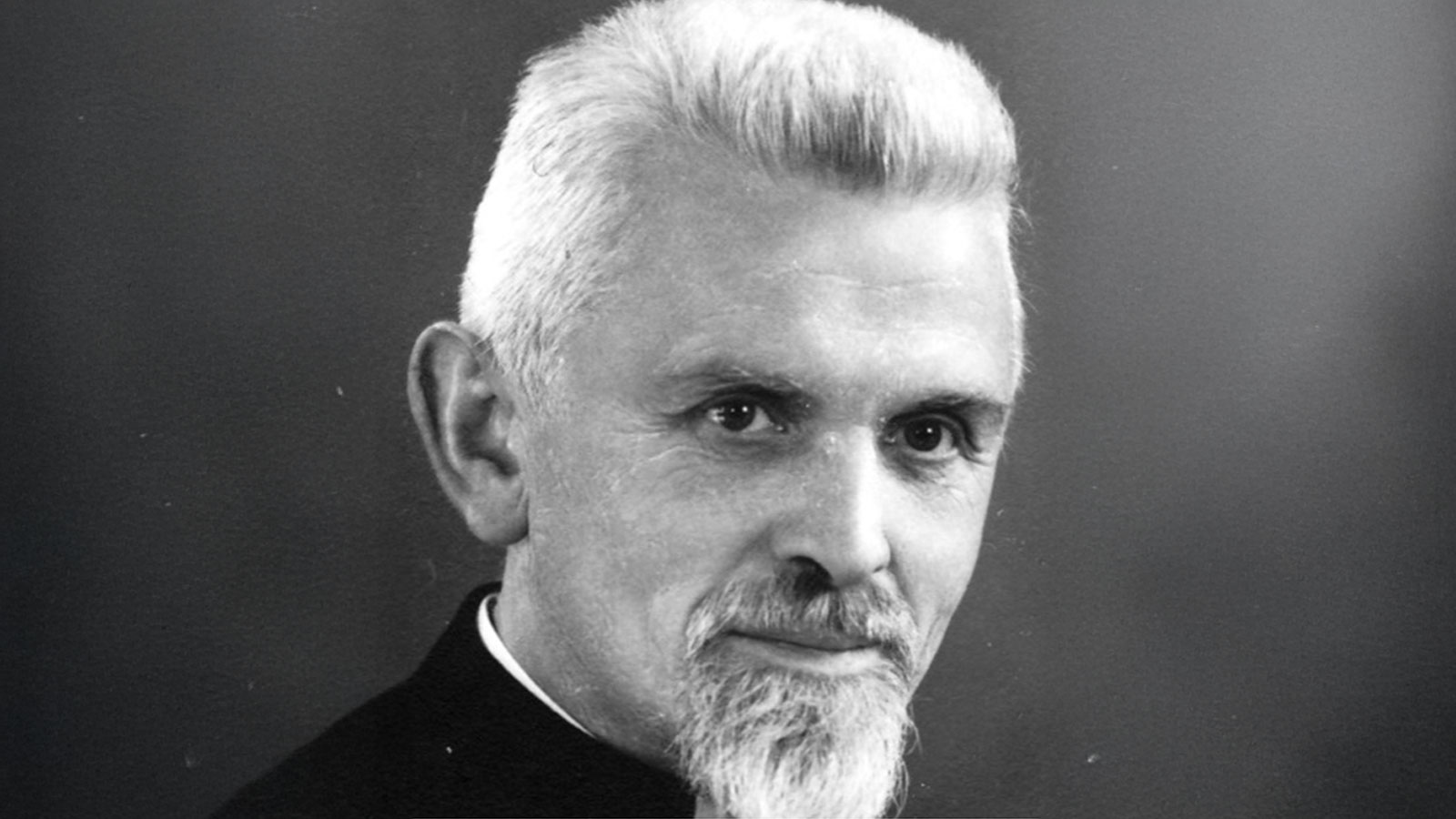 by Jean-Gracia Etienne, cicm
by Jean-Gracia Etienne, cicm
General Councilor
“May the God of peace himself make you perfectly holy and may you entirely, spirit, soul, and body, be preserved blameless for the coming of our Lord Jesus Christ" (1 Thes 5:23)
A Fervent Call at the Beginning of the 15th CICM General Chapter 2017
At the opening of the 15th CICM General Chapter, Father Javier Alvarez- Ossorio, SSCC, was invited to lead the recollection that marked the beginning of the occasion. He focused his meditations and exhortations on the biblical text quoted above. In his exegetical approach, Father Javier emphasized the distinction and function of each element of the Spirit-Soul-Body trilogy. He then attempted to apply the results of this exegetical analysis to CICM.
He proposed that the spirit is the foundational charism, the formulation of mission ideals, and the promulgation of our Congregation’s Constitutions and Statutes. The soul is the heart of the Congregation. It is the capacity to experience God, inspire and animate others, and transform communities into disciples of faith, hope, and charity. The body is the members of CICM.
Based on these considerations, Father Javier invited the participants in the 15th General Chapter and all the Congregation members to look mainly at the Congregation’s soul (heart). According to him, it is not enough for the body to be healthy and the spirit to be alive. It is critical that the Congregation’s members take care of its soul.1 Javier’s exhortation had a positive impact on the capitulants during the Chapter and on all the members of the Congregation through the publication of the Acts of the Chapter. These Acts included a summary of Father Javier’s message. What has happened to this message five years after the 15th Chapter?
On the Progress of the Congregation After the 15th General Chapter
We have attempted to maintain and nurture our Congregation’s spirit, soul, and body over the last five years, with the help of the Holy Spirit. This explains its continued active participation in Christ’s mission entrusted to the Church. The reports of the meetings and assemblies of the eight CICM Provinces, as well as those of canonical visits to the confreres in the field and the Houses of Initial Formation by members of the General Government (GG), as well as positive echoes received from Christ’s faithful and bishops in the places where the congregation’s members are engaged, attest to the congregation’s vitality. Confreres’ witness still needs to be improved. The work of the 2019 CICM General Conference provides a more general overview of our congregation’s current situation.
The CICM General Conference: A Period of Evaluation of the Orientations of the 15th General Chapter
Two years after the 15th General Chapter, the GG organized a General Conference in Santo Domingo, Dominican Republic, from October 14 to 28, 2019, in accordance with our Constitutions (Art. 105). The Provincial and Vice-Provincial Superiors and the members of the GG of our Congregation attended this meeting. The work of this Conference was centered on the implementation of the 15th Chapter. Furthermore, participants in this Conference reflected on the Congregation’s mission, Initial Formation, consecrated celibacy, and other topics. There was also time to assess the effectiveness of some of our Congregation’s internal structures.
It was observed that the confreres took the recommendations of the 15th General Chapter seriously from the reports of all the CICM Provinces. These reports were honest and sincere, reflecting what was accomplished and what was not accomplished, as well as the various obstacles and suggestions. Furthermore, these reports highlighted our Congregation’s participatory leadership. In dealing with new challenges in frontier situations, some Provinces and the GG have demonstrated exemplary discernment. This process of reflection led to the selection of Malawi as a new missionary insertion. There was also a greater awareness among the confreres of the importance of being good stewards of the Institute’s material goods and finances. Internal and external audits conducted in all Provinces have contributed to this awareness.
Moreover, as recommended by the 15th General Chapter, the carbon tax has become a common practice throughout our Provinces. Multiculturalism was also perceived as a fact and a success at all levels of the Institute and in our Initial Formation communities. The Institute’s charism is similarly visible in our preference for the poor. This is reflected in the confreres’ involvement in various ministries, such as those for abandoned children, orphans, migrants, the elderly, drug addicts, and so on.
Furthermore, new insertions in most of our Provinces attest to the pioneering spirit of our charism, which has become an integral part of our missionary life. Overall, the participants in the General Conference renewed their sense of optimism for the future. This optimism stems from the positive reports and missionary projects of the various Provinces. The sharing during this General Conference had given the participants renewed hope for the future.2
The General Conference participants also identified some less positive aspects that require attention. It is disheartening, for example, to see some confreres refuse to change their apostolate. They would rather stay in their comfort zone and are unwilling to serve the Congregation when called upon. Also troubling is the fear of Provincial Superiors making difficult decisions, such as applying the decree on dealing with serious cases of fraud and financial mismanagement. Furthermore, it is saddening to see confreres in the process of leaving the Congregation or those who are problematic being sent for specialized studies. It is also surprising to see such a small number of active confreres on the field, despite the significant presence of young people.
The reports from our Provinces, on the other hand, made the participants realize that there is still work to be done in terms of honesty, truth, and commitment as missionaries and religious. First, we must be aware of sexual and other forms of abuse, as well as how to prevent them. Second, it is critical to support ecological projects and to instill in the confreres the importance of the environmental statement. Finally, we must emphasize lay associate formation, animate the confreres through strategic corporate mission projects, and remind them of the 15th General Chapter’s recommendations, declarations, and decrees.3
The Mission During the Covid-19 Pandemic
The Covid-19 health crisis has had a significant impact on people’s lives all over the world. Members of our Institute are called to witness God’s love in the midst of suffering and death. The GG conducted a survey of our eight CICM Provinces through the General Committee for Mission. The GG wanted to solicit reflections on the pandemic’s impact on the confreres and the lives of those around them. The goal of this survey was to gather ideas for what more could be done in the long run at the level of our Provinces and the Congregation as a whole.
We have retained a few elements from the responses received that stem from the CICM’s initiatives to better cope with this reality. To begin, our CICM Provinces put in place safeguards to ensure the safety and health of our confreres and close collaborators. To ensure everyone’s safety, the confreres did their best to strictly adhere to the directives and health protocols issued by the governments and health authorities of their respective places. Confreres collaborated with religious and non-governmental organizations to provide food and health supplies in an effort to alleviate the suffering of the vulnerable. During the lockdown, steps were also taken to ensure that workers and employees received all or half of their wages.
Efforts have been made in schools and parishes where confreres work to better extend relief efforts to the most affected communities. For their part, the young confreres in our Houses of Formation have found ways to be creative and helpful during this pandemic. Confreres, particularly those involved in parish ministry, had been celebrating Masses online in order to continue providing liturgical service to the faithful during their confinement. Professionals from universities and our schools were encouraged and supported to provide counseling and psychological support to those suffering from trauma and stress. Confreres in some of our CICM Provinces offered their facilities as temporary shelters for frontline workers such as doctors, nurses, and so on. Individual confreres and communities reported they experienced intense moments of prayer and realized more the value of community life. Finally, meetings and other gatherings were held using Zoom, Skype, Google Meet, and other similar platforms.
The pandemic’s impact on human lives continues unabated. As a result, some proposals were made in order to develop long-term strategies for dealing with this crisis. It was proposed to establish a “Covid-19” fund and, if possible, allocate a substantial budget for emergency relief to parishes and other CICM entities. This would allow continued assistance to vulnerable people needing food and health care. Cooperation with faith-based organizations, government services, and non-governmental organizations was also contemplated. This collaboration would help most people suffering from the economic downturn caused by the pandemic by creating alternative livelihoods. We must continue to take adequate measures to protect the Institute’s vulnerable members, particularly those in our retirement homes. And, if possible, consider adequately training Institute members to assist people suffering from psychological trauma and stress due to the pandemic. There is also a strong desire to ensure appropriate training of young confreres for mission in the post-Covid-19 context. Finally, there is an urgent need to manage available resources better and strengthen congregational solidarity. We hope that the necessary steps will be taken to implement some of these proposals.
So far, we have attempted to present some of the actions taken by Institute members within the framework of the mission in order to revitalize the Institute in the spirit of the body-soul-spirit trilogy. However, we must not overlook the explicit call to pay special attention to the Congregation’s soul (heart). Can we say that the confreres have responded to this call and that the next General Chapter does not need to revisit this critical aspect of our trilogy?
The Link Between the 15th General Chapter’s Call and the 16th CICM General Chapter in Preparation
We are not satisfied with the attention given to the Congregation’s soul thus far. Nurturing our Congregation’s soul is a never-ending task. Therefore, the following theme has been chosen for the next Chapter in order to further encourage Institute members to fidelity to religious vows, intense individual and community prayer, contemplation, reconciliation, community life, and a new missionary thrust: “Witnessing to the Gospel in a Changing World.” The three memos, which were sent to Institute members for personal and community meditation, reflection, and small group sharing in preparation for the Provincial and Regional Assemblies for the next Chapter, are entitled: “Spirituality and Mission: to Evangelize is our Joy”; “Reconciliation as a Gift from God and a Missionary Task”; and “Interculturality as Witnessing.”
The contents of these memos were not only applicable to the preparation and conduct of Provincial and Regional Assemblies. They should constantly remind all Institute members to work on improving the soul (heart) of the Congregation. In this regard, we would like to reiterate St. John Paul II’s words to the religious of London on May 29, 1982:
Most people know what you do, and admire and appreciate you for it. Your true greatness, though, comes from what you are. Perhaps what you are is less known and understood. In fact, what you are can only be grasped in the light of the “newness of life” revealed by the Risen Lord. In Christ you are a “new creation” (cf. 2 Co 5:17). . . This “newness of life” is a gift of Christ to his Church.
We hope that these words may well guide us in our efforts to improve the quality of our lives and our commitment every day in order to fulfill better our role as religious missionaries in this changing world.
_______________
1. Cf. CICM, Acts of the 15th General Chapter, Rome, 2017, p. 11-12
2. Cf. CICM, General Conference Report, Santo Domingo, 2019, p. 23
3. Cf. Ibidem, p. 25.







